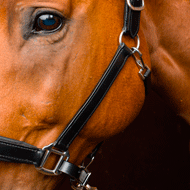
Scheme gives riders access to the expertise of a world-leading authority
A new referral scheme has been launched by the Saddle Research Trust (SRT) to help riders tackle saddle-related problems. The scheme will give riders access to the expertise and advice of a world-leading authority at a manageable cost.
Saddle-fitting problems and equine back pain have been related by riders to loss of performance. However, recent studies have shown that horses with saddle slip syndrome were more than 50 times more likely to be lame or have gait abnormalities. Lameness can often be difficult to recognise which can lead to potential welfare problems for the horse and can have implications for the rider as well. A further study has identified a clear link between ill-fitting saddles and back pain in the rider.
Anne Bondi, founder of the SRT, said: "The Saddle Research Trust receives around two requests every week for advice on saddle-related issues. Many horse owners report that they feel trapped in a seemingly unending cycle of veterinary/musculoskeletal/saddle fit assessments without ever determining the underlying cause of the problem. The lack of a definitive diagnosis can be expensive but most importantly has the potential to result in a permanently damaged horse.”
The new referral scheme, which is exclusive to SRT members and friends, aims to help owners resolve their saddle-related problems. Potential cases can be submitted to the SRT for an initial assessment and if deemed suitable will be passed, with the permission of the owner's veterinary surgeon, to the SRT's veterinary advisor, Dr Sue Dyson at the Animal Health Trust for a full assessment.
Dr Dyson, a world-renowned expert in equine orthopaedics, will conduct an independent and thorough review of the past history plus an examination of the horse, saddle and rider interaction. This includes physical and visual evaluations as well as in-hand, ridden and saddle fit assessments. She will then provide a written report for the owner and their associated professional practitioners.
Dr Dyson said: “The SRT has taken a valuable step forward in raising standards of welfare and practice in the industry with this important referral scheme and I am pleased to support it.”
The scheme will be showcased at the forthcoming Saddle Research Trust International Conference, to be held in Cambridge on 29th November 2014 at Anglia Ruskin University. The conference is supported by World Horse Welfare (WHW) and is approved by BEVA. To find out more visit www.saddleresearchtrust.com



 The latest
The latest